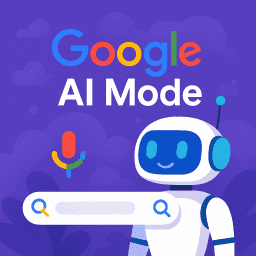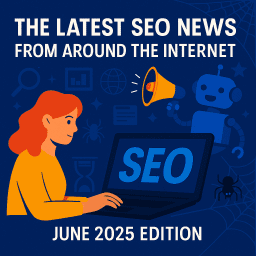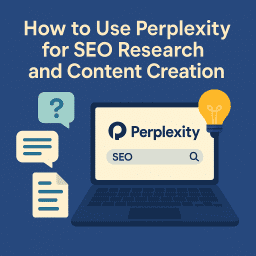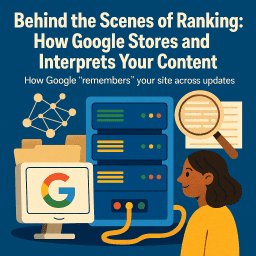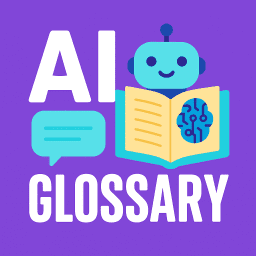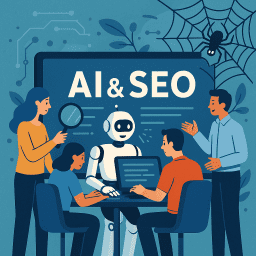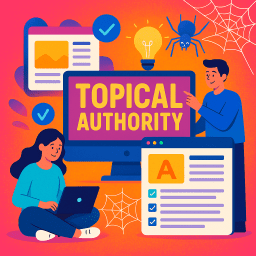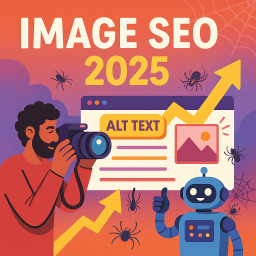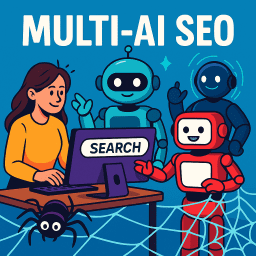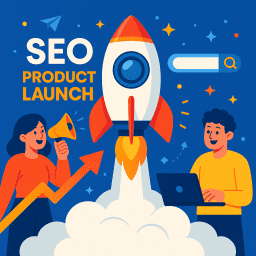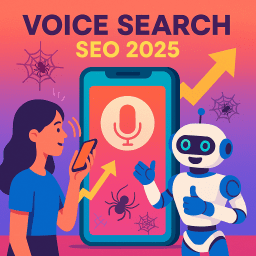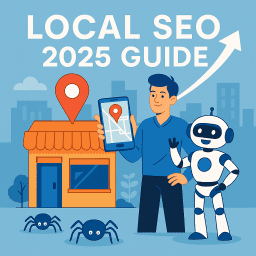AI and SEO in 2025: Impact on Content and Rankings
What marketers, SEOs and creators need to know about the rise of AI in search
⚡ How AI Content Is Reshaping Google Rankings
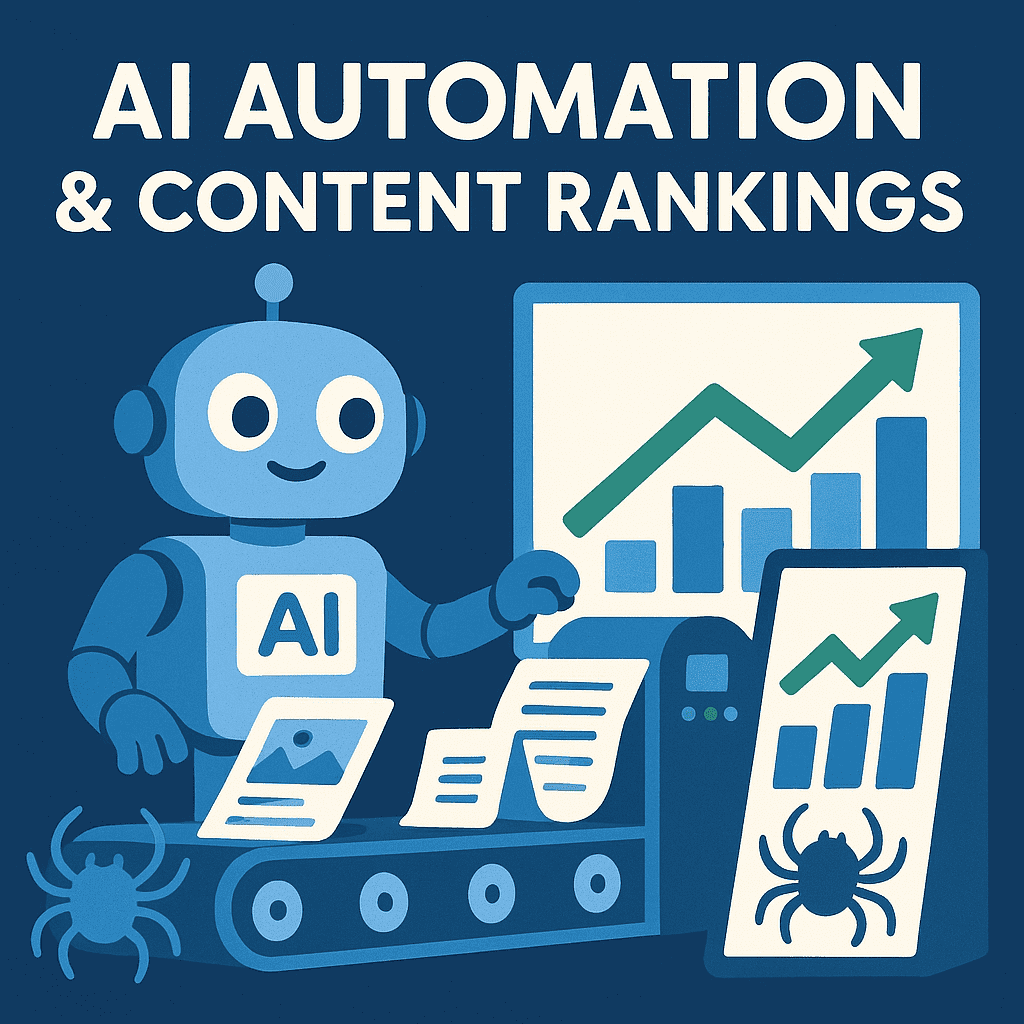
AI has moved from futuristic promise to everyday reality—especially in the world of content and search. Whether you’re using ChatGPT to outline a blog post, Jasper to scale product descriptions, or Claude to summarise research, artificial intelligence is now an integral part of the modern content workflow.
But as more creators and marketers embrace automation, the question looms: How is AI really affecting SEO and Google rankings? Will AI-written content dominate the SERPs—or be penalised? And where do humans still make a difference?
This guide breaks down the current landscape in 2025. We’ll explore how AI and automation are influencing content creation, search rankings, and SEO strategy—and what you can do to stay ahead.
🤖 The Rise of AI in Content Creation
The last two years have seen an explosion in the use of AI tools like:
These tools can generate blog posts, headlines, social content, emails, product descriptions, FAQs, and even full landing pages. For small teams or solo entrepreneurs, they offer:
- ⚡ Faster content creation
- 📉 Lower production costs
- 📚 Built-in research support
But speed comes at a cost. AI can mimic patterns—but not originality. It lacks lived experience, nuance, and opinion. The result? A flood of bland, derivative content flooding the web—and Google has noticed.
🧠 Google’s Response: AI Content & E-E-A-T
Google has made its position clear: AI content isn’t automatically penalised. What matters is whether it’s useful, trustworthy, and meets the user’s intent.
That’s where E-E-A-T comes in: Experience, Expertise, Authoritativeness, and Trustworthiness. Google uses these signals—alongside machine learning—to assess quality.
- 👨🏫 Human experience is hard to fake
- 🔍 First-hand knowledge builds trust
- 📜 Citations and credentials matter
Even if AI writes the draft, it must be reviewed, fact-checked, and enhanced by real people to meet modern ranking standards.
🔍 How AI Affects Search Rankings
AI doesn’t just write content—it’s reshaping how users find and engage with it.
- 🧠 Google’s AI Overviews summarise results directly on the SERP
- 📉 Zero-click searches are rising, reducing traffic to traditional blog posts
- 📌 Pages that rank are now often those that AI can summarise and cite
What ranks well in 2025:
- ✅ Structured content with clear headers and summaries
- ✅ Credible author bios with expertise
- ✅ Schema markup, FAQs, and data tables
What doesn’t rank:
- 🚫 AI-spun content with no originality
- 🚫 Walls of text without structure
- 🚫 Pages with high bounce rates and low dwell time
⚙️ Automation in SEO Workflows
AI isn’t just changing what we publish—it’s also transforming how we work.
- 🔍 Keyword research tools now generate full topic clusters
- 📋 AI can create SEO briefs, title tags, and meta descriptions
- 📡 Internal linking tools use Natural Language Processing (NLP) to automate contextual suggestions
For agencies and teams, this means more output with fewer resources. But it also increases the risk of:
- 📉 Homogenised content across competitors
- 🔁 Over-reliance on templates
- 🤖 Copy-paste AI spam if left unchecked
📉 AI Spam and the Content Saturation Problem
Google has already responded to scaled AI content with aggressive spam updates in late 2024 and early 2025. These updates targeted:
- ⚠️ Affiliate sites pushing mass AI product reviews
- 📚 Fake news blogs with auto-generated content
- 💡 Sites that cloned Wikipedia pages using AI
The result? Thousands of domains were deindexed. Rankings tanked. Manual penalties returned in some cases.
Lesson: Just because AI can produce 100 blog posts doesn’t mean you should publish them.
✍️ Where Human Content Still Wins
Despite all the noise, human-led content still dominates when it comes to:
- 📖 First-hand product reviews and case studies
- 🎙️ Interviews, opinion pieces, and expert analysis
- 📍 Local guides and niche community knowledge
- 📊 Original research, surveys, and insights
Google increasingly rewards depth, personality, and authenticity. These aren’t things AI can fake—at least not yet.
📌 How to Future-Proof Your SEO Strategy
The smartest SEO strategies in 2025 blend the best of both worlds:
- 🤖 Use AI for speed: research, outlines, formatting, and drafts
- 👨💻 Use humans for refinement: tone, depth, structure, and originality
- 🎯 Focus on search intent, not just keywords
- 🧱 Build trust with bios, policies, real-world credibility
- 🌍 Strengthen brand presence beyond Google (social, email, PR)
Also invest in:
- 📊 Analytics and testing—watch what actually converts
- 📬 Audience engagement—build a loyal base you can talk to directly
- 📈 Evergreen content that grows in value over time
💬 What the Experts Are Saying
- Danny Sullivan (Google Liaison): “We don’t care how content is created. We care whether it’s helpful and meets intent.”
- Rand Fishkin (SparkToro): “AI makes content easy to generate—so originality, empathy, and tone are the new differentiators.”
- Lily Ray: “You can’t automate authority. Human input, real-world experience, and brand trust still matter more than ever.”
✅ Conclusion
AI isn’t the end of SEO. It’s a new beginning. It’s an opportunity to do more, better—and faster—but only if we use it wisely.
In 2025, great SEO means embracing AI without abandoning human value. It means knowing when to automate and when to personalise. And it means creating content that’s not just optimised—but helpful, trusted, and human.
The future belongs to creators who can blend technology and empathy. Start now.
📝 Recap and Clarify: Post-Specific FAQs
Does AI-generated content rank well on Google?
AI content can rank—but only if it’s edited, original, and genuinely helpful. Google prioritises quality, relevance, and user experience over how content is produced.
Can automated SEO tools replace human input?
No. While automation can streamline workflows, strategy, intent matching, and nuanced writing still require human oversight to meet modern SEO standards.
Is AI content against Google’s guidelines?
No. Google doesn’t ban AI content outright. What matters is whether it’s useful, accurate, and created to help users—not to manipulate rankings.
Will human-written content still matter in the future?
Yes. Content written or curated by people with real experience, personality, and insight stands out and builds trust—something AI alone can’t replicate yet.
What is the risk of using unedited AI content?
Unedited AI content can be repetitive, inaccurate, or miss intent—leading to poor rankings, lower engagement, or even deindexing if it’s deemed low-value by Google.
How does Google detect poor-quality AI content?
Google uses signals like bounce rate, dwell time, and user interaction. If users quickly leave or don’t engage, the content may be flagged as unhelpful—regardless of origin.
What’s the best way to use AI in content workflows?
Use AI to generate outlines, draft sections, or rewrite content—but always fact-check, personalise, and align the output with search intent and brand voice.
Can fully automated content rank long-term?
It’s unlikely. Google’s focus on E-E-A-T and helpful content means unedited AI pages typically lack the depth, originality, and trust signals to maintain rankings.
Should content creators use AI at all?
Yes—when used wisely. AI can save time and improve efficiency, but final output should be human-refined to ensure clarity, usefulness, and originality.
What’s the future of content in an AI-driven world?
The future favours blended approaches: AI for scale, humans for quality. Content that delivers real insight, trust, and experience will continue to win in search.
AI can write content—but only humans can make it matter. – David Roche


